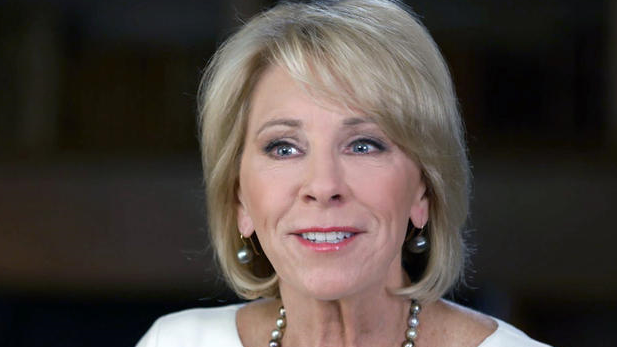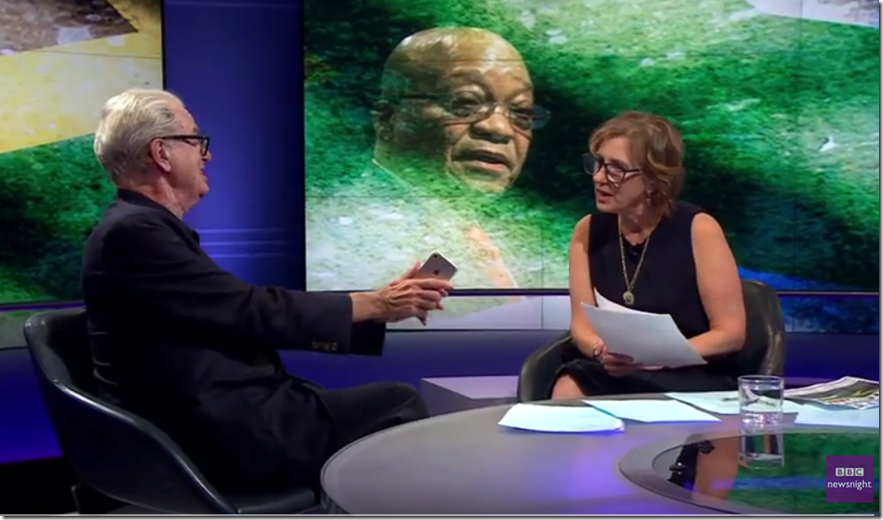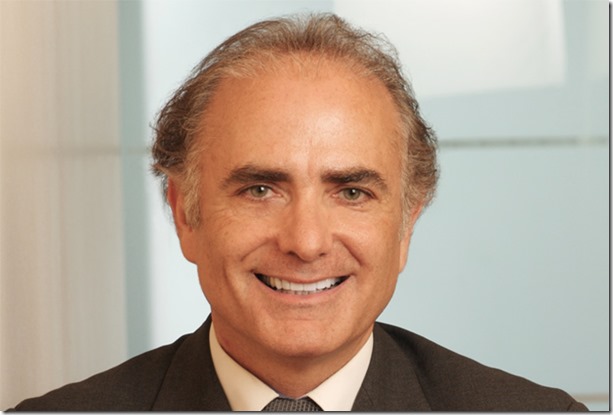The Ten Worst Media Disasters Of 2011
The Mr. Media Training Blog is pleased to announce the ten worst on-camera media gaffes of 2011!
This year’s winners include a politician who lost his place, a country singer who lost his job, and a celebrity who lost his show.
The media spokespersons were selected based on the impact of their gaffes. All ten people reinforced an existing narrative about their lack of preparedness for office, their lack of discipline, or their lack of compassion.
Here, without further ado, are the ten worst video media disasters of 2011!
#10: Hank Williams, Jr. Compares President Obama to Adolf Hitler
In October, country singer Hank Williams, Jr. was fired up during an appearance on Fox and Friends. While reflecting on a golf match between President Obama and House Speaker John Boehner, Mr. Williams quipped, “It would be like Hitler playing golf with Netanyahu.” The Fox hosts looked shocked and distanced themselves from his statement; ESPN promptly dropped his theme song as its Monday Night Football opener.
#9: Sarah Palin’s “Blood Libel”
Months before Rep. Gabrielle Giffords (D-AZ) was almost killed in Tucson, Former Gov. Sarah Palin (R-AK) released an infamous “crosshairs map,” which placed a target over Ms. Giffords’ congressional district. In the days after the shooting, Ms. Palin was blamed, in part, for the shooting.
Ms. Palin was upset by media stories connecting her to the crime; she was right that there was no evidence that the shooter had even seen her map. But she over-reacted, taking to the airwaves to blame the media for committing “blood libel.” That term is most commonly used as an anti-Semitic slur referring to Jews murdering Christians.
Her poll numbers immediately plummeted with Independents and Republicans (Fox News head Roger Ailes was also said to be infuriated by her response). Instead of using the moment to expand her base by issuing a gracious statement, Ms. Palin narrowed it, leading many political prognosticators to declare her 2012 hopes dead.
#8: NPR Fundraiser Ron Schiller Blasts The Tea Party
National Public Radio’s chief fundraiser, Ron Schiller, went to lunch with a couple of men claiming to be Muslim donors in March. It turned out they were Republican activists with a hidden camera. During the lunch, Mr. Schiller called members of the Tea Party, “seriously racist, racist people,” among other things.
That he made those comments was bad enough; that he made them while NPR was already in the midst of a heated debate about its public funding was flabbergasting. His comments not only led to his immediate resignation, but the resignation of NPR’s CEO, as well. The House of Representatives voted to strip NPR of its federal funding. Fortunately for NPR, the Senate prevented that from happening – for now.
#7: Rupert Murdoch Channels Tony Hayward
While testifying before the British Parliament in July, News Corp CEO Rupert Murdoch was asked whether he accepted the ultimate responsibility for his company’s phone hacking scandal. Not only did he say “no,” but he delivered his answer without even a hint of humility. So much for Harry Truman’s axiom, “The buck stops here.”
By delivering such an indifferent answer, he gave former BP Executive Tony “I’d like my life back” Hayward competition as the world’s most clueless corporate executive.
#6: Rick Perry’s “Oops” Moment
During a Republican presidential debate in November, Gov. Rick Perry (R-TX) confidently declared he would eliminate three government agencies – and promptly forgot what they were. For 47 painful seconds, Mr. Perry tried to recall the third agency he would eliminate. He finally gave up, shrugged his shoulders, and lamely said, “oops.” That one moment likely sank any remaining chances Mr. Perry had of winning the nomination.
DO YOU AGREE WITH MY PICKS FOR THE TEN WORST MEDIA DISASTERS OF THE YEAR? CLICK HERE TO TAKE OUR POLL AND CAST YOUR VOTE FOR THE WORST.
#5: President Obama Jokes About Joblessness
With the nation’s unemployment rate above nine percent and millions of Americans desperate to find work, President Obama cracked a joke in June that few people found funny.
When a questioner asked a serious question about the nation’s inefficient permitting process, Mr. Obama cracked wise about his two-year-old pledge to create shovel-ready jobs, joking, “Shovel-ready was not as shovel-ready as we expected.” Many people blasted the President for his political tin ear, which has gotten him in trouble before (see earlier gaffes related to a San Francisco fundraiser, Hillary Clinton, and the Special Olympics).
#4: Charlie Sheen’s Downward Spiral
There’s little funny about addiction, and Charlie Sheen’s dangerous spiral was sad to watch (see “Why #Winning Isn’t Funny”). Sheen stayed in the news for months, but it was his out-of-touch interview with sycophantic radio host Alex Jones in February that led to his dismissal from his top-rated sitcom, Two and a Half Men.
In that interview, Sheen made vaguely anti-Semitic comments about “Men”” creator Chuck Lorre, called Alcoholics Anonymous a “bootleg cult,” and labeled Thomas Jefferson a “pussy.” He topped off his tirade by threatening to “murder” those who attack his family.
#3: The Herman Cain Affair
Republican presidential candidate Herman Cain was caught flat-footed in October when numerous women accused him of sexual harassment (another woman later asserted she had had a long-term sexual affair with him). Mr. Cain changed his story on an almost-hourly basis, even arguing that he didn’t understand an earlier question that had used the word “settlement” instead of “agreement.”
Mr. Cain dropped out of the race in December, maintaining his innocence to a public that no longer believed him.
Politico compiled a partial chronology of Mr. Cain’s rolling disclosures in the early days of the crisis.
#2: (Alleged) Penn State Child Rapist Jerry Sandusky Speaks
When former Penn State football coach Jerry Sandusky spoke to NBC’s Bob Costas in November about horrific allegations that he raped numerous boys, no one was prepared for his jaw-dropping answer to this direct question: “Are you sexually attracted to young boys?” It took 16 seconds for Sandusky to say “no.” Instead, he began by saying how much he “enjoyed” young people and loves to be around them. Sandusky’s alleged actions, combined with Penn State’s ineffectual response, led to the firings of the University president and legendary football coach Joe Paterno.
(Fast forward to 7:15)
#1: Anthony Weiner’s Twitter Scandal
Self-immolations rarely come in more spectacular fashion than when Rep. Anthony Weiner (D-NY) was caught tweeting naughty photos to strangers in June. His approach to crisis management was to:
- Deny the charges and claim his Twitter account had been hacked.
- Call a reporter a “jackass.”
- Say that although he hadn’t sent the photos, he couldn’t rule out “with certitude” that the erect undies shot was of him.
- Hold a tearful press conference to admit he had tweeted the photos himself but refusing to resign.
- Watch helplessly as a nude photo of his…ahem…member…was released.
- See his private news about his wife’s early-term pregnancy announced to the world.
- See yet another batch of sexy gym photos released.
- Resign in shame.
One of Mr. Weiner’s worst moments (there were many) was captured during a CNN interview, in which he sanctimoniously blasted reporters. After Mr. Weiner resigned, a Republican won his seat, costing Democrats a critical seat in the House of Representatives.
FLASHBACK: THE TEN WORST MEDIA DISASTERS OF 2010
Click here to listen to Brad Phillips discussing this top ten list on Washington D.C.’s top-rated radio station, WTOP-FM.
Like our blog? Don’t go yet! Like us on Facebook here and follow us on Twitter here.
Even better, have the best of the blog delivered to your inbox twice per month! Enter your name below.




Impressive list, Brad! 2011 was such an exciting year for the PR disaster, it must have been something of a chore picking the truly worst disasters. As always, a great read and spot-on analysis. Thanks for the post!
Thanks, John!
Picking numbers 1-5 was easy; numbers 6-10 are much harder, since I have to decide which ones are “list-worthy.” A few good ones had to drop off the list.
Thanks for reading. I look forward to hearing what other readers have to say, since there’s inevitably some disagreement with my choices.
Best wishes,
Brad
[…] Brad Phillips compiles the ten worst media disasters of year, of which five are by politicians. […]
[…] won’t go through their whole press release (or column which you can read here) but they listed among this year’s major […]
[…] The Ten Worst Media Disasters of 2011: ‘Tis the season when journalists and bloggers compile end of the year roundups. This one includes famous flubs and presidential faux pas from 2011, including videos of all ten incidents. […]
Brad -this was so impressive- not easy to remember all these- great job!
[…] markets, a slide show displays the most innovative products, and Anthony Weiner leads the 10 worst media disasters of the year. Andrew O’Hehir lists his 10 top movies, Gizmodo lists the most expensive computer […]
[…] have to be the “best of.” It can be the “worst of” such as the 10 Worst Media Disasters of 2011 from Brad Phillips, aka @MrMediaTraining on Twitter. Also consider lists that highlight the […]
I agree to this list on all points except on #8. The NRP story was a fabricated story based on a highly edited tape. James O’Keefe is not a reliable source and he has proven this, time and time again.
Here’s a good source for the truth behind the video.
And just to summarize I’m quoting this:
Either you remove the story, since it’s fabricated, or you disclose that it was.
David,
Thank you for your comment. Media Matters also raised the same point with me (on Twitter, not in the comments section), so I’ll address your concerns here.
First, I’m glad that you agree with nine of the ten picks on my list. That’s a good start. Second, I agree with you that James O’Keefe has released video in the past that dishonestly distorts the facts, and I indeed view his releases (and Andrew Breitbart’s) with the skepticism they deserve.
As to the points you listed, I’m only concerned with number four, which was the basis of including this video on my year-end list. Numbers one through three and five and six may or may not be true (I’m guessing they were indeed distorted, as you claim), but they’re irrelevant in terms of this story. I’ll focus solely on number four in this reply.
The sources you sent were problematic. The Daily Kos often gets it right, but they have a clear left-wing perspective – not exactly neutral journalism. The same must be said about Glenn Beck’s website, the Blaze, except they have a clear right-wing perspective. Since you sent me The Blaze as a primary source for your conclusion, please note that that story itself says, “Clearly the NPR executives, particularly Ron Schiller, show poor and, at times, despicable judgment…He clearly says some offensive things, while being very direct that he is giving his own opinion and not that of NPR.”
In the end, I agree with their conclusion. The relevant portion of the transcript is below:
SCHILLER: The current Republican Party, particularly the Tea Party, is fanatically involved in people’s personal lives and very fundamental Christian — and I wouldn’t even call it Christian. It’s this weird evangelical kind of move… it’s been hijacked by this group that…
“MUSLIM”: The radical, racist, Islamophobic, Tea Party people?
SCHILLER: It’s not just Islamophobic, but really xenophobic. Basically, they believe in white, middle America, gun-toting — it’s pretty scary. They’re seriously racist, racist people.
The question comes down to this: Do you believe that Mr. Schiller was quoting a Republican friend and not making these statements himself, or not? The first half of the quote seems to me to be unclear – but the second half seems rather evident that it’s his viewpoint, not a quote.
I’m not alone in this conclusion; NPR itself called his comments “appalling.”
Finally, if you still disagree with me, consider this question: Why was a public figure – the head of NPR’s fundraising – discussing these matters at all, especially with a person he was meeting for only the first time? Even if this was a sting, no one made him characterize the Tea Party in this way (as a personal quote or quoting someone else.) Prudence would have dictated that he answered the question by saying something like, “You know, I’m a fundraiser, not a political pundit. I’ll let others discuss their views of the Tea Party – let me talk about how NPR is reacting to the political pressure we’re in now.”
I appreciate your comment, and am always open to considering alternative evidence. Based on everything I’ve seen so far, I stand by the selection.
Thank you,
Brad
[…] Mr. Media Training’s “The Ten Worst Media Disasters of 2011.” This list is not just a look back, but also offers an opportunity for instruction. A few lessons: […]
[…] the fantastic blog from Brad Phillips and Phillips Media Relations, recently covered “The Ten Worst Media Disasters of 2011” and was interviewed by several radio and TV stations about the […]
interesting and insightful examples I think, thanks so much for putting them up Brad. My one question would be, how would you have advised handling seven and six? Particularly six ( seven seems a matter of personality trumping media training) because no matter how well briefed you might be on the campaign trail. Memory lapses like this must happen.
Great question, Tom.
You’re absolutely right – memory lapses happen to all of us, and Gov. Rick Perry was far from alone in suffering a temporary mental lapse. When these types of situations occur, I generally advise spokespersons to tell the audience what they know, not what they don’t.
For example, he could have said something such as, “The three agencies are Commerce, Education, and ummm…you know, I’m forgetting the third one, but let me tell you why it’s so important that we cut these agencies. I believe the work they do can be best handled by the states, and the cost to taxpayers is just too high. That’s why I propose….”
Would that have been perfect? No. But it would have been a whole lot better than 45 seconds of a disastrous gaffe.
Thanks again,
Brad
per the article: “…blame the media for committing “blood libel.” That term is most commonly used as an anti-Semitic slur referring to Jews murdering Christians.”
I’m not sure the writer of this article even knows what “blood libel” is. The term blood libel is NOT used as an anti-Semitic slur. It is more of an ANTI-anti-Semitic term. It is not the Jews who are being accused of libel, it is those who accuse the Jews of blood sacrifice who are doing the libeling. Thus, when an anti-Semite (non-Jew) is said to have libeled the Jews (committed blood libel), it is a DEFENSE of the Jews, not a slur. The term blood libel is a condemnation of those who libel the Jews by lying about the Jews having killed Christians. Got it?
Now the fact is, I personally loath what Sarah Palin stands for. However I think people greatly over react to her using the analogy that she (Palin) was libeled in the same way the Jews were libeled when both she and the Jews were accused (falsely) of causing death. Palin may have been a bit over-blown rhetorically in her use of the term, but I could make a case that Palin understood the term “blood libel” better than does the writer of the above article.
Hi Billy,
Thank you for your comment.
“Blood libel” is broadly recognized as an anti-Semitic term. In fact, Wikipedia’s “blood libel” page is part of its series on Antisemitsm: http://en.wikipedia.org/wiki/Blood_libel.
From the L.A. Times: “Blood libel has been a central fable of anti-Semitism in which Jews have been accused of using the blood of gentile children for medicinal purposes or to mix in with matzo, the unleavened bread traditionally eaten at Passover.”
From The National Review: “Historically, the term is almost invariably used to describe anti-Semitic myths about how Jews use blood — usually from children — in their rituals.”
There are many other similar examples, and my use of the term seems well within the commonly accepted definition of the term.
Best wishes,
Brad